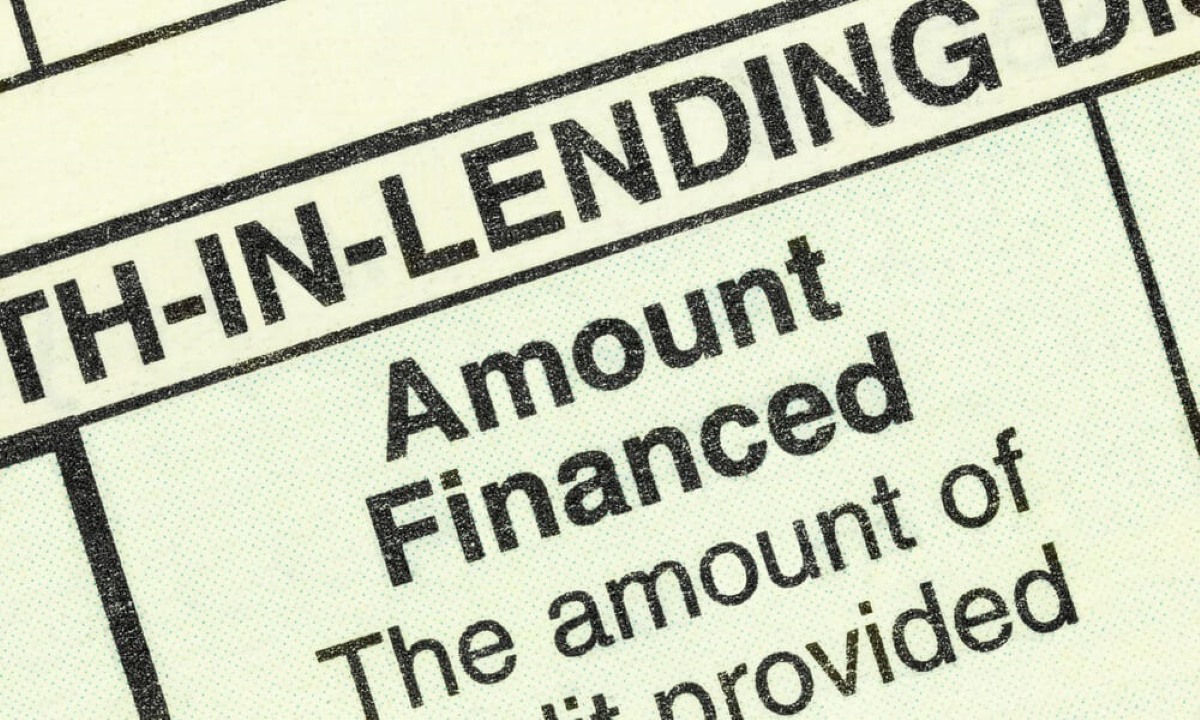Home>Finance>What Is A Grace Period Under A Flexible Spending Account?


Finance
What Is A Grace Period Under A Flexible Spending Account?
Published: February 20, 2024
Learn about grace periods for flexible spending accounts and how they can impact your finances. Understand the benefits and limitations of this financial tool.
(Many of the links in this article redirect to a specific reviewed product. Your purchase of these products through affiliate links helps to generate commission for LiveWell, at no extra cost. Learn more)
Table of Contents
**
Introduction
**
Flexible Spending Accounts (FSAs) are a valuable employee benefit that allows individuals to set aside pre-tax dollars to cover eligible medical expenses. These accounts are designed to ease the financial burden of healthcare costs by providing a tax-advantaged way to pay for medical services and supplies. However, navigating the nuances of FSAs can be complex, and understanding the concept of a grace period is crucial for maximizing the benefits of these accounts.
In this article, we will delve into the intricacies of FSAs and explore the concept of a grace period, shedding light on its significance and implications for account holders. By gaining a comprehensive understanding of grace periods under FSAs, individuals can make informed decisions regarding their healthcare expenses and optimize the utility of these accounts.
Throughout this discussion, we will examine the benefits and drawbacks of grace periods, providing valuable insights to empower readers with the knowledge needed to leverage FSAs to their fullest potential. Let's embark on a journey to unravel the mysteries of grace periods under Flexible Spending Accounts and discover how they can impact financial planning and healthcare management.
Understanding Flexible Spending Accounts
Flexible Spending Accounts (FSAs) are employer-sponsored benefit plans that enable employees to allocate a portion of their pre-tax earnings to cover qualified medical expenses. These accounts serve as a tax-advantaged financial tool, offering individuals the opportunity to save money on out-of-pocket healthcare costs.
Contributions to FSAs are deducted from employees’ pay before taxes are withheld, resulting in a reduction of taxable income and, consequently, a lower overall tax liability. The funds allocated to FSAs can be utilized for a wide range of eligible medical expenses, including copayments, deductibles, prescription medications, and certain medical supplies.
It is important to note that FSAs operate on a “use-it-or-lose-it” principle, meaning that funds contributed to the account must be utilized within the plan year, typically ending on December 31st. However, there are provisions, such as the grace period, that offer account holders additional flexibility in utilizing their FSA funds.
By understanding the fundamental principles of FSAs, individuals can leverage these accounts to mitigate healthcare expenses and achieve greater financial security. The tax advantages and potential cost savings associated with FSAs make them a valuable component of comprehensive employee benefits packages, empowering individuals to proactively manage their healthcare expenditures.
What Is a Grace Period?
A grace period, in the context of a Flexible Spending Account (FSA), refers to an extension of time beyond the end of the plan year during which account holders can incur eligible expenses and utilize any remaining funds in their FSA. This additional period, typically lasting up to 2.5 months, offers individuals the opportunity to spend down their FSA balance from the previous plan year, providing a valuable cushion to cover unforeseen or delayed medical expenses.
During the grace period, account holders can incur eligible medical expenses and utilize the remaining funds from the prior plan year, effectively extending the window for utilizing FSA funds. This extension provides a degree of flexibility, allowing individuals to address healthcare needs that may have arisen towards the end of the plan year or early in the subsequent year.
It is important to note that the specific duration of the grace period may vary depending on the terms of the FSA plan. While the standard grace period extends for 2.5 months after the end of the plan year, employers have the flexibility to define the exact timeframe for this extension. As such, individuals should familiarize themselves with the details of their FSA plan to fully comprehend the parameters of the grace period.
By providing an extended window for utilizing FSA funds, the grace period offers a valuable opportunity for account holders to maximize the benefits of their FSA and effectively manage their healthcare expenses. Understanding the nuances of the grace period is essential for individuals seeking to optimize the utility of their FSA and make informed decisions regarding their healthcare expenditures.
Benefits of a Grace Period
The grace period under a Flexible Spending Account (FSA) offers several significant advantages for account holders, enhancing the utility and flexibility of these tax-advantaged accounts. Understanding the benefits of the grace period is essential for individuals seeking to leverage their FSA to its fullest potential and effectively manage their healthcare expenses.
-
Extended Utilization Window:** The primary benefit of the grace period is the extension of the timeframe within which account holders can utilize their FSA funds. This additional 2.5-month period beyond the end of the plan year provides individuals with more time to incur eligible medical expenses, thereby reducing the risk of forfeiting unused FSA funds.
-
Coverage for Delayed Expenses:** The grace period accommodates delayed medical expenses that may have arisen towards the end of the plan year or early in the subsequent year. This ensures that individuals have the opportunity to address unforeseen healthcare needs without being constrained by the traditional plan year deadline.
-
Financial Flexibility:** By allowing account holders to access their FSA funds during the grace period, this extension offers a degree of financial flexibility, enabling individuals to effectively manage healthcare costs and alleviate the burden of out-of-pocket expenses.
Ultimately, the grace period serves as a valuable mechanism for optimizing the utility of Flexible Spending Accounts, empowering individuals to proactively address their healthcare needs while maximizing the tax advantages associated with these accounts. By leveraging the benefits of the grace period, account holders can navigate the complexities of healthcare expenses with greater ease and financial prudence.
Drawbacks of a Grace Period
While the grace period under a Flexible Spending Account (FSA) offers valuable extensions and benefits, it is important to consider the potential drawbacks associated with this provision. Understanding the limitations of the grace period is crucial for individuals seeking to make informed decisions regarding their healthcare expenses and FSA management.
-
Limited Rollover Options:** Unlike the FSA rollover provision, which allows up to $550 of unused funds to carry over into the following plan year, the grace period does not provide a rollover mechanism. This means that any remaining FSA funds at the end of the grace period are forfeited, potentially resulting in the loss of unutilized funds.
-
Delayed Reimbursement:** During the grace period, individuals may experience delays in the reimbursement of eligible medical expenses, as the extended timeframe for utilizing FSA funds could impact the processing and settlement of claims. This delay may affect the timely management of healthcare expenses, requiring account holders to plan and budget accordingly.
-
Plan Year Alignment:** The grace period may create complexities in aligning FSA contributions and plan years, as the extension overlaps with the commencement of the subsequent plan year. This alignment challenge could introduce administrative complexities and necessitate careful planning to ensure a seamless transition between plan years.
It is essential for individuals to weigh these drawbacks against the benefits of the grace period when evaluating their FSA management strategies. By carefully considering the implications of the grace period, account holders can make informed decisions to optimize the utilization of their FSA funds and mitigate potential drawbacks associated with this provision.
Conclusion
Flexible Spending Accounts (FSAs) offer a valuable avenue for individuals to proactively manage their healthcare expenses while benefiting from tax advantages. The concept of a grace period, which extends the utilization window for FSA funds beyond the traditional plan year, adds a layer of flexibility and opportunity for account holders. By understanding the implications of the grace period, individuals can navigate the complexities of FSAs with greater confidence and strategic foresight.
While the grace period presents benefits such as extended utilization windows and coverage for delayed expenses, it is important for account holders to be mindful of potential drawbacks, including limited rollover options and administrative complexities. By weighing these factors, individuals can develop informed strategies to optimize the utility of their FSA funds and effectively manage their healthcare expenditures.
Ultimately, the grace period serves as a valuable tool for enhancing the flexibility and practicality of FSAs, empowering individuals to address their healthcare needs with greater financial prudence. By leveraging the benefits of the grace period while mitigating its potential drawbacks, account holders can maximize the value of their FSAs and achieve greater control over their healthcare expenses.
As individuals navigate the realm of employee benefits and financial planning, a comprehensive understanding of the grace period under FSAs equips them with the knowledge needed to make informed decisions and leverage these accounts to their fullest potential. By embracing the nuances of the grace period, individuals can embark on a journey towards greater financial security and proactive healthcare management.














